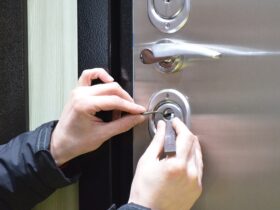The main methods of insulation of houses facades
The issue of increasing thermal insulation of residential buildings today is especially relevant. You can solve this problem in several ways. First of all, this is the use of modern technologies and materials in the process of erecting houses and cottages. If it is required to insulate the building of the early building, then the most suitable solution in this case will be the insulation of the facades and walls of the building.
This kind of work today is performed by a large number of specialized construction companies, from which you can learn more about the service. The walls of residential buildings can be insulated in two ways – external and internal. External insulation can be carried out by using plaster technology (“wet facade”), which provides for the creation of a light or heavy system, as well as a ventilated facade or well masonry.
The most common of them is a light plaster system. It is a reinforcing layer of small thickness attached to the surface through the insulation using dowels. As a heater with this variant of insulation, polystyrene foam, polystyrene or mineral wool is usually used.
Unlike a light, heavy insulation system of facades involves the use of a steel reinforcing mesh instead of a fiberglass, and the fastening of materials to the wall is not using dowels, but using steel anchors. In this regard, the thickness of the insulation layer can reach 50 mm. Sometimes ventilated facade systems are also mounted. They got their name due to the presence of an air gap between the layer of insulation and the wall of the building. But such systems have a fairly high cost, so not everyone is affordable.
Compared to it, the well laying is the most inexpensive. It includes three layers-a supporting wall, insulation and decorative protective layer. Typically, such thermal insulation is made by a height of not more than 15 meters.
Insulation of the walls of the building in the internal way also has several options. It can have the form of a “wet facade”, that is, a foam glued to the wall, reinforced with a fiberglass, putty and pasted with wallpaper. But this method is not very practical, since it often leads to the formation of the fungus on the walls.








Hello!! My name is Jeanine
I love to eat, travel, and eat some more! I am married to the man of my dreams and have a beautiful little girl whose smiles can brighten anyone’s day!